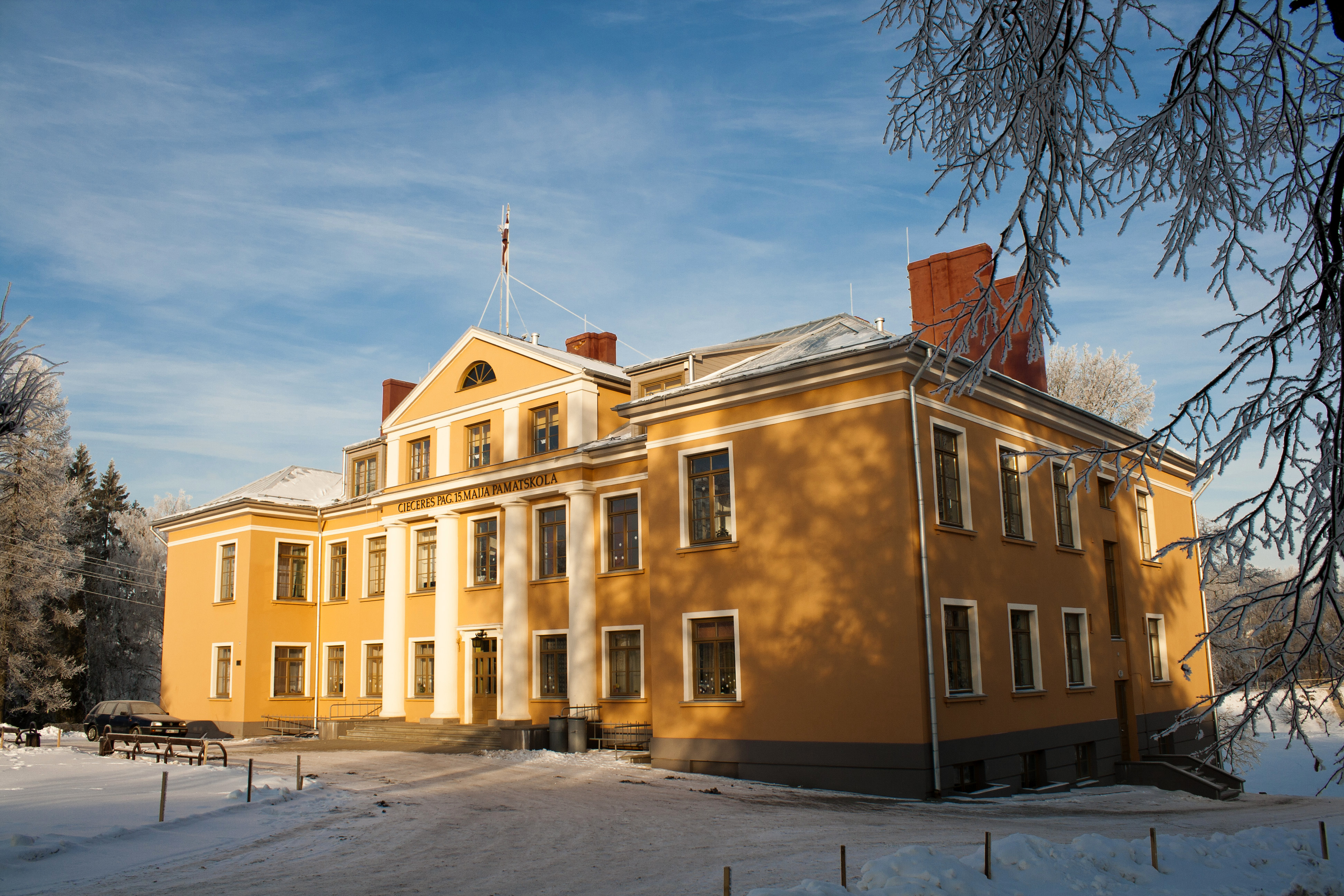|
Traffic 1. Līga
The Latvian First League ( lv, Latvijas Pirmā līga, 1. līga) is the second tier of football in Latvia and is organised by the Latvian Football Federation. History The league was founded together with other Latvian football competitions in 1992. From 2007 to 2008, the tournament was known as the Traffic 1. līga, due to its first sponsorship deal concluded with the "Traffic auto advert" advertising company. From 2015 its name was Komanda.lv First League (''Komanda.lv 1. līga'') for sponsorship reasons, after thKomanda.lv sporting goods store became the league's main sponsor in 2015. Format There are 15 clubs in the First League. During the course of the season each club plays the every other club twice, once at home and once away, with a total of 28 games. At the end of the season, the highest placed club is automatically promoted to the Virslīga. The second lowest placed club in the Virslīga and the second placed club in the First League compete in a Play-off over two mat ... [...More Info...] [...Related Items...] OR: [Wikipedia] [Google] [Baidu] |
Latvian Higher League
Latvian Higher League or Virslīga is a professional football league and the top tier of association football in Latvia. Organised by the Latvian Football Federation, the Higher League is contested by 10 clubs. The full name of the league is Optibet Virslīga for sponsorship reasons since 2019. History and league format History The first all-national Latvian championship, which succeeded the Riga Football League and other regional leagues, was organized in 1927, which lasted until the Soviet occupation of Latvia in 1940. After World War II, between 1945 and 1991 the championship of Soviet Latvia was the main footballing competition in the Latvian SSR. With Latvia regaining full independence in August 1991, the newly established Latvian Football Federation (LFF) decided to reorganise its competitions within the Virslīga from 1992. The same year Latvia returned to FIFA and became a member of UEFA. Format After the 2007 season the league increased from eight to ten sides. ... [...More Info...] [...Related Items...] OR: [Wikipedia] [Google] [Baidu] |
Grobiņas SC
Grobiņas sporta centrs () is a Latvian football club based in Grobiņa and plays in the 2nd tier of Latvian football Latvian First League and the Latvian Football Cup. In 2016 Grobiņas SC won the Kurzeme Regional League and therefore qualified for the 2nd League final tournament which they won as well (beating SK Cēsis in finals) and with that earning promotion to First League. In their First League debut season they achieved 4th place. Grobiņas SC also has an agreement with FK Liepāja FK Liepāja/Mogo is a Latvian football club, founded in 2014. The club is based at the Daugava Stadium in Liepāja. FK Liepāja plays in the Latvian Higher League. In their first season they finished 4th in the 2014 Latvian Higher League. Hi ..., thus having regular players joining/getting loaned from Liepaja. Season By Season Results : Players First-team squad ''As of 10 November 2021.'' References External linksfacebook [...More Info...] [...Related Items...] OR: [Wikipedia] [Google] [Baidu] |
FK Salaspils
FK Salaspils is a Latvian football club. They compete in the second-highest division of Latvian football ( 2. līga) and the Latvian Football Cup. They are based in the town of Salaspils Salaspils (; german: Kircholm; sv, Kirkholm) is a town in Latvia, the administrative centre of Salaspils Municipality. The town is situated on the northern bank of the Daugava river, 18 kilometers to the south-east of the city of Riga. His .... References Football clubs in Latvia {{Latvian First League ... [...More Info...] [...Related Items...] OR: [Wikipedia] [Google] [Baidu] |
Olaine
Olaine (; german: Olai) is a city in Olaine Municipality in the Vidzeme region of Latvia. Olaine gained town rights in 1967. The name comes from the Saint Olai Church, built by the Misa river under Swedish rule in the 17th century. An old cemetery remains at this site. After 1868, a railway stop "Olai" was built on the Riga-Mitau line. After Latvian independence, in 1919 "Olai" was renamed to "Olaine", in line with the Latvianisation of topological names all over Latvia. The population in 2020 was 10,668. The history of Olaine is closely connected to a nearby peat bog first taken into use in 1940. Thereafter, more production facilities were built, increasing numbers of workers needed accommodation, and the first dwellings were built in what is currently known as Olaine. Previously, Olaine was the name of a village just two kilometers away. This village now has the name of Jaunolaine (''New Olaine''). Olaine is home of Olainfarm, the second largest pharmaceutical company in Latvi ... [...More Info...] [...Related Items...] OR: [Wikipedia] [Google] [Baidu] |
AFA Olaine
AFA Olaine is a Latvian football club. They compete in the second-highest division of Latvian football ( 1. līga) and the Latvian Football Cup. First-team squad ''As of 30 April 2017.'' References External links * Olaine Olaine (; german: Olai) is a city in Olaine Municipality in the Vidzeme region of Latvia. Olaine gained town rights in 1967. The name comes from the Saint Olai Church, built by the Misa river under Swedish rule in the 17th century. An old cemete ... Olaine {{Latvia-footyclub-stub ... [...More Info...] [...Related Items...] OR: [Wikipedia] [Google] [Baidu] |
Rīga
Riga (; lv, Rīga , liv, Rīgõ) is the capital and largest city of Latvia and is home to 605,802 inhabitants which is a third of Latvia's population. The city lies on the Gulf of Riga at the mouth of the Daugava (river), Daugava river where it meets the Baltic Sea. Riga's territory covers and lies above sea level, on a flat and sandy plain. Riga was founded in 1201 and is a former Hanseatic League member. Riga's historical centre is a UNESCO World Heritage Site, noted for its Art Nouveau/Jugendstil architecture and 19th century wooden architecture. Riga was the European Capital of Culture in 2014, along with Umeå in Sweden. Riga hosted the 2006 Riga summit, 2006 NATO Summit, the Eurovision Song Contest 2003, the 2006 Men's World Ice Hockey Championships, 2006 IIHF Men's World Ice Hockey Championships, 2013 World Women's Curling Championship and the 2021 IIHF World Championship. It is home to the European Union's office of Body of European Regulators of Electronic Communic ... [...More Info...] [...Related Items...] OR: [Wikipedia] [Google] [Baidu] |
Smiltene
Smiltene () is a town in the Vidzeme region in northern Latvia, 132 km northeast of the capital Riga, and the administrative centre of Smiltene Municipality. It has a population of 5,536 (2015). Name Its original name was Smiltesele (the ending probably came from the Russian "selo" - village), later it was called Smilten in German before adding the Latvian ending and thus becoming Smiltene. Geography Smiltene is located in the northern part of the Vidzeme Highland on the banks of the river Abuls (Abula). It was formerly in Valka District prior to the reorganization of 2009, which eliminated districts, and placed the town as part of Smiltene Municipality. The town centre is 106 metres above the sea level, the highest spot is on Klievu street - 145.14 metres above the sea level. There are three possible meteorite craters in Smiltene. History The area around Smiltene was a part of the Latgalian lands of Tālava. After Crusaders had taken over most of the modern day Latvia, t ... [...More Info...] [...Related Items...] OR: [Wikipedia] [Google] [Baidu] |
FK Smiltene
FK or fk may refer to: In arts and entertainment: * Flyer Killer, fictional automated robots in the ''Terminator'' film franchise. * Fox Kids, a former American children's television programming block. * Funky Kong, a video game character. Place: * FK postcode area, UK, centred on Falkirk in Scotland. * Falkland Islands, FIPS PUB 10-4 territory code and ISO 3166 digram **.fk, country code top-level domain (ccTLD) for the Falkland Islands. Other uses: * First aid kit * First Corridor rail coach * Football Club, abbreviated "FK" in Slavic and Balkan countries * Foreign key, in database design * Forward kinematics, in robotics and animation, the use of kinematic equations to find the position of an articulated object * Fuck, an English-language vulgarity * Africa West Airlines (IATA airline designator FK) * Finders Keepers * kinetic friction Friction is the force resisting the relative motion of solid surfaces, fluid layers, and material elements sliding against each oth ... [...More Info...] [...Related Items...] OR: [Wikipedia] [Google] [Baidu] |
Saldus
Saldus (; german: Frauenburg) is a Latvian town located in Courland ( lv, Kurzeme) and is the main town, and the central location in Saldus Municipality. The name Saldus has been noted in historical sources as far back as the mid-13th century, but the founding year is considered to be 1856, and it gained town rights in 1917. The city is almost precisely in between Riga and Liepāja (slightly closer to ‘Liepāja’ (100 km), than Riga (119 km). River Ciecere flows through Saldus, and it is a tributary to one of Latvia’s biggest rivers Venta. The city is often referred to as "the Bowl of Courland". This is because of a famous quote by Māris Čaklais: "A drop of honey in the bowl of Courland". The reasoning behind the quote is the fact that from a high point, the city looks like a crater. As of January 2019, Saldus is the 17th-largest city in Latvia according to population data. In 2019 the town had a population of 9937. History Early history According to arch ... [...More Info...] [...Related Items...] OR: [Wikipedia] [Google] [Baidu] |
Saldus SS/Leevon
Saldus (; german: Frauenburg) is a Latvian town located in Courland ( lv, Kurzeme) and is the main town, and the central location in Saldus Municipality. The name Saldus has been noted in historical sources as far back as the mid-13th century, but the founding year is considered to be 1856, and it gained town rights in 1917. The city is almost precisely in between Riga and Liepāja (slightly closer to ‘Liepāja’ (100 km), than Riga (119 km). River Ciecere flows through Saldus, and it is a tributary to one of Latvia’s biggest rivers Venta. The city is often referred to as "the Bowl of Courland". This is because of a famous quote by Māris Čaklais: "A drop of honey in the bowl of Courland". The reasoning behind the quote is the fact that from a high point, the city looks like a crater. As of January 2019, Saldus is the 17th-largest city in Latvia according to population data. In 2019 the town had a population of 9937. History Early history According to arc ... [...More Info...] [...Related Items...] OR: [Wikipedia] [Google] [Baidu] |
JDFS Alberts
Jura Docenko Futbola Skola Alberts, commonly referred to as JDFS Alberts, is a Latvian football club based in Riga, that plays in Latvian First League The Latvian First League ( lv, Latvijas Pirmā līga, 1. līga) is the second tier of football in Latvia and is organised by the Latvian Football Federation. History The league was founded together with other Latvian football competitions in 19 ... (1. līga), the second-highest division of Latvian football. The club was founded as a football school in 2008 on the basis of FK Alberts youth system. It was named after a football coach Juris Docenko who died in January 2008. Before the 2015 season the club received a license to participate in the First League. League and Cup history Current squad . Team staff References External linksOfficial website Football clubs in Latvia 2008 establishments in Latvia {{Latvia-footyclub-stub ... [...More Info...] [...Related Items...] OR: [Wikipedia] [Google] [Baidu] |


